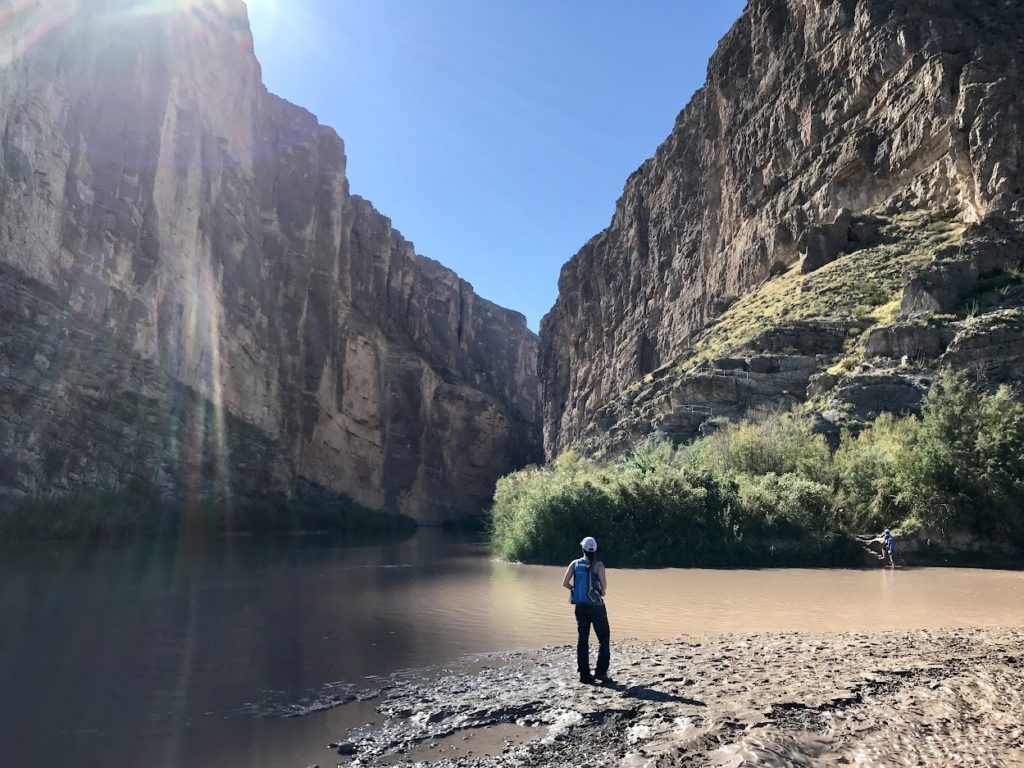
Confessions From Costa Rica
6 Unhinging Truths From A Journey Inward
After years of ‘doing’ yoga, I finally learned that it’s about a lot more than mastering Eka Pada Koundinyasana. The breathwork, the stillness, and the listening can way more intense than the physical postures, and way more intimidating to practice.
The first thing to know about Costa Rica is that everything moves… really… slowly. No one is in a hurry. Nothing is urgent. Schedules are more like suggestions. Agendas are open to interpretation. It didn’t occur to me until I got home that I hadn’t so much as laid eyes on a television in a week.
The distractions we constantly consume ourselves with were gone. And what happens when you take away the mind-numbing inertia of multi-tasking? When we slow down, when we are truly quiet, when we stop momentum… The thoughts start flooding in. And sometimes they slam us in the face as uncontrollably and powerfully as a west coast riptide. The environment is ripe for introspection. For revelations. For soul searching. For listening to the internal mind chatter. And getting really f*cking uncomfortable.
Once this started to happen I realized why so many people choose, as author Guy Kawasaki put it, to glorify being busy. When we allow the mental process of going inward, emotions arise. And usually they are the disturbing ones. The emotions that we created a life of ‘busy-ness’ to distract ourselves from in the first place. So what happens when you take away the job, technology, family, to-do lists, and social life? What happens when you stop pushing things away and really take a look at what you are experiencing underneath the facade?
I recently spent seven days in Santa Teresa, Costa Rica as part of a yoga retreat making a courageous effort to find out. I was faced with some uncomfortable truths every single day. And faced with the question of why they made me uncomfortable. And wondering if the journey is to accept them or try to change them. So, do I channel my inner Tony Robbins and believe that I have the ability to create change? Or, do I channel my inner Buddha and try to detach? And either way, maybe part of the vulnerability work is to share what happened. Because maybe it will help someone else know that they are not alone. That when these thoughts arise it doesn’t mean we are crazy, but that we are alive, and human, and normal. So here are my truths.
HERE IS WHAT HAPPENED WHEN I TOOK THE INTIMIDATING ADVENTURE INWARD
TRUTH #1: THERE IS ALWAYS SOMETHING WE ARE ESCAPING
During every retreat or impactful travelling I have done, there has been something I was escaping. Or trying to heal. Or forget. For a brief, naive moment in Costa Rica I actually thought to myself, “I’m good this time. Nothing is wrong. I’m truly here to just work on me, and not deal with the inevitable tears of a current heartache.” I wanted to work on enlightenment. I wanted to work on finding more peace, on “practicing meditation,” and on finding a truer connection to source.
That was my plan. And it lasted until about 7pm on the first day. After our evening practice, our instructor had us sit in a circle to do some chanting. Just some simple “OM’s.” And with each chant she guided us to dedicate it. “Om… for this practice. Om… for the people in this room. Om… for a friend who needs it. Om… for your family…” And there it was. I couldn’t even finish the vibration. Family. The broken relationship with my brother that I’m so afraid is beyond repair. I have no control. I can’t fix it. The thing I hadn’t even acknowledged that I was trying to escape from. And if we can’t fix something, then the work is to accept, right? And maybe this is why we try so hard to escape from things. Because how do you accept something that weighs so heavy on your heart?

TRUTH #2: MY BODY IS A FOREIGN OBJECT
We spend our entire lives, every moment of our existence, inside our physical bodies. And yet the majority of us walking this Earth know very little about them. Sure, we know the basics. We can tell when we’re sick. If we have an injury, we can feel where it hurts. We feel better when we sleep. We feel good after we exercise. And the signs of aging are an eventual certainty. (As much as we try to prevent it). But there is so much more. The chakras. The bandas. Energy lines. The interconnectedness of body to brain. Body to soul. The integration of all of it. The extent of the information held in each molecule. Functionality. Mobility. Psychoneuroimmunology. (Yes, that’s a word. And a super important field of study).
If this sounds like another language, that’s my point. These aren’t made up words or concepts. And we’ve only begun to scratch the surface. Why is it that the only people studying these things are yoga teachers, some athletes, and a select few health care professionals? As a species are we doing ourselves a huge disservice by not learning about this stuff much earlier in life? There may be endless ways this can improve our experience of LIVING. Would we be more comfortable in our own skin if we were more connected to what is going on underneath it?
TRUTH #3: I AM NOT FEARLESS
“If all of your friends jumped off a bridge, would you do it too?” No. The answer for me is no. One by one I watched every woman in my group climb up a rock and jump off into a natural pool overlooking a waterfall. I climbed up the rock, looked down, turned around, and climbed back down. I couldn’t do it. That one fraction of a second of hesitation, and I was stuck. The limiting, confining, restricting emotion of fear consumed every fiber of my being.
And all I could think about was the viral Will Smith video as someone was yelling at me, “get out of your head!”
And the concept that fear doesn’t exist. Or, rather, it only exists in our minds. And I’m a therapist. I know that. I understand it. I teach it. I write a blog about how being adventurous is nature’s anti-depressant. And I still couldn’t make my feet leave that rock. WHY?
“Fearless” is such a badass word. And something I try to tell myself I am. Or I “should” be. But I’m not. Not when it comes to jumping off things. Or communicating in my relationship. Or putting myself out there through my blog and social media. Or trying to do a handstand in yoga class. And the list goes on. But doesn’t it count that I am sometimes? That I still went ziplining despite my intense fear of heights? That I chose to take a complete leap of faith and leave the security of my job in corporate America do something completely unpredictable? Why can I be brave sometimes and not others?
And the next thought that I really didn’t want to take a look at (because, again, I know better): the realization that I was thinking about what other people would think. It’s a good thing I’ve read Brene Brown’s words so much that my brain accesses them in moments like these:

TRUTH #4: HOLY SH*T, I'M NOT A YOGI
Quite an interesting revelation to have on a yoga retreat. The word is casually used to describe “someone who does yoga.” But if you actually embark on the historical study of yoga, you learn that the asanas (the poses that look so cool all over everyone’s IG) are, literally, only one-eighth of what yoga is about. The yoga sutras (limbs or components of yoga) go much deeper to explain the entire being of a yogi. Things like moral code, virtuous habits, breath work, withdrawing of the senses, mantras, meditation, and the union of all of it. The awareness, and control of, mind, body, and soul.
So can I get myself into a pretty impressive Parsva Bakasana? Sure can. Can I sit quietly and focus on breathing for awhile and call it meditation? Every day. But am I a yogi? Um, I guess not? I sat there listening to one of my teachers lead us in chanting a mantra. The purpose of the chant was to invoke the God Ganesha who, in Hindu culture, is the “Remover of Obstacles.” And, as my guru Jimmy would say, “Yes, please. More of that.” In the moment I felt slapped in the face by humility. I don’t know anything about Ram, Hanuman, or Shiva, and I certainly don’t know how to invoke them. I’m wearing mala beads and I’ve never chanted anything 108 times in a row. Have I been talking the talk without walking the walk? How much about this practice and way of life have I not even begun to learn? How can I preach something that I don’t fully understand? I haven’t even read the Bhagavad Gita.
And so I had a mini anxiety attack right there on my mat. And then I took some deep breaths and joined in the chant. And when I quieted my mind, the universe answered… It’s a practice. I’m not supposed to know it all already. It may even take a lifetime. It comes to us when we are ready. And maybe the acknowledgement of my lack of knowledge is the catalyst to take the next steps in the journey.
TRUTH #5: ANOTHER PERSON'S REALITY DOES NOT HAVE TO BE MINE
A beautiful part of the retreat experience is the people you meet and get to spend time with. You hear life stories, tragedies, inspiration, and the experiences that have shaped personality. Fascinating stuff. There was a woman on this particular trip who I admire tremendously. When you admire someone tremendously, you tend to take what they say to heart. So imagine how I felt when I heard her say, “monogamy is not realistic.”
I didn’t sleep that night. I chewed on it for days. “Is she right? She has so much more life experience than I do. She’s clearly smarter than I am. Is my relationship doomed to fail? Is my boyfriend cheating right now?” (The mind can be a beautifully tragic thing, can’t it…?)
People formulate beliefs, ideas, and understanding through many things. Their own experiences. Observation. Society. Family of origin. Religion. So I had to be my own therapist for a minute. A great cognitive-behavioral question to ask yourself when you are feeling challenged by something is, “Is this a fact?” Or, “Is this the truth?” And when it came to the question at hand, the answer was unquestionably, “no.” Are there people who believe that monogamy is unrealistic, and have every right based on their experience to stand by that statement? Yes. But does that mean it applies to everyone and every relationship? No. People make statements in absolutes to make sense of their worlds.
As a therapist you are taught that you must put your personal beliefs aside when you are working with clients. (It’s damn near impossible, by the way.) We all tend to make blanket statements based on the way we feel about things, and we may even 100% believe them to be true. There is beauty and wisdom in being able to put your own agenda aside and just listen to someone else talk about their experience. And to respect it. And even appreciate it for what it is. But we don’t have to internalize their stories as our own truths.
TRUTH #6: I AM NOT VERY NICE TO MYSELF
Yoga teacher Jen Pastiloff reminds us, “I am enough. Who I am is enough. What I do is enough. And what I have is enough.”
Towards the end of the week the emotion that was coming up was anger. The reason I went on the retreat in the first place was to grow. To advance my physical practice as well as the mental and spiritual. So it seemed odd that I was getting mad at myself for learning that I still had a lot to learn. Didn’t I already know that? But I was beating myself up for feeling “so far behind.” For not having read the book yet, or taken the training, or visiting the place.
The psychological business of managing expectations is crucial to mental health. Every day in therapy I see someone suffering because of unrealistic expectations they have placed on themselves. And here I was doing the thing I try to teach people not to do. What was my expectation? That I’d be overly knowledgeable about every facet of yoga and be “good” at it just because I love it? This anger was a huge testament to the power of self talk. I could tell myself that I’m not good enough because I’m not where I think I should be. Or I could practice gratitude for the fact that I have the ability to go on yoga retreats to Costa Rica with amazing teachers and focus on learning more. I could criticize myself for what I hadn’t yet done, or applaud myself for what I had. And here’s the tricky part – both of those statements might be true. But I can choose which one I use when I speak to myself.
I haven’t advanced my overall practice of being a yogi, but it’s not like I wasn’t doing anything else with my time. I spent years getting my securities license and working in the financial sector. And then I spent a few more years getting a master’s degree and becoming a mental health counselor. It is so easy for us to focus on what we haven’t done instead of what we have, and that allows for the creation of negative self talk, which creates negative emotions. Remember? Those things we work really hard NOT to feel. How would our lives change if we could truly believe:



